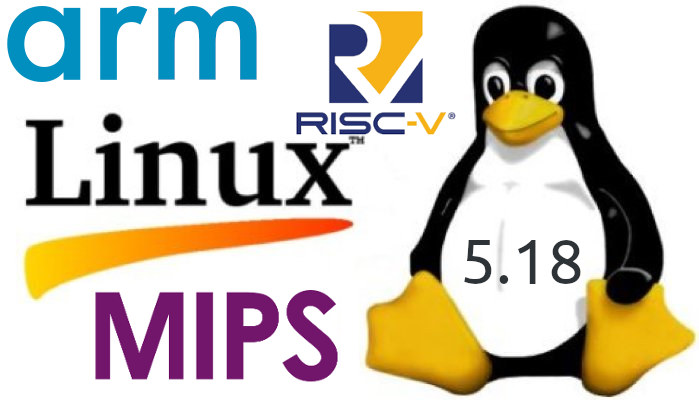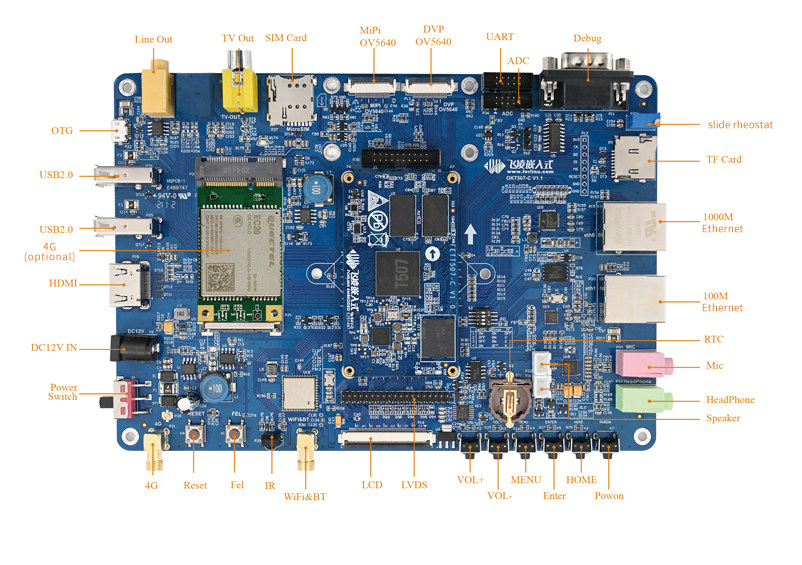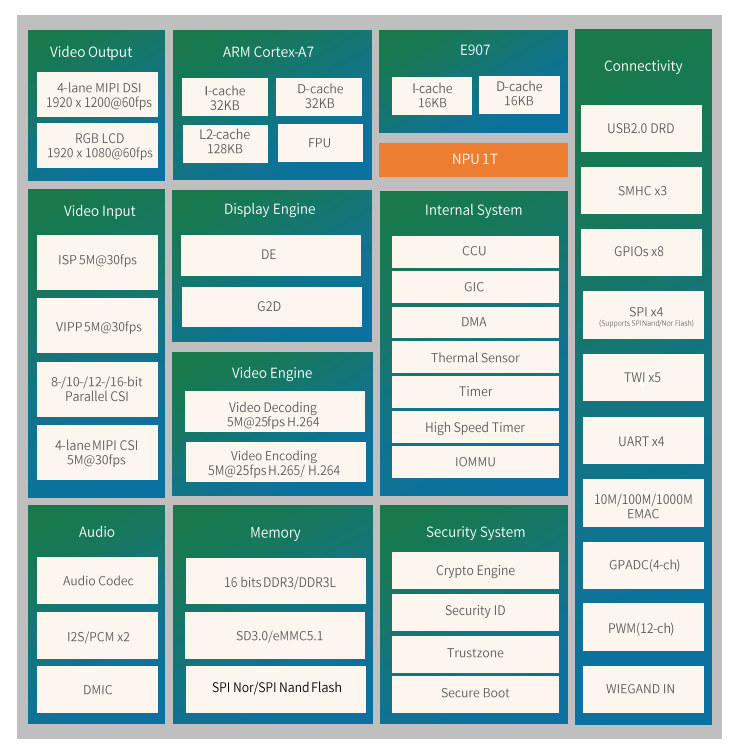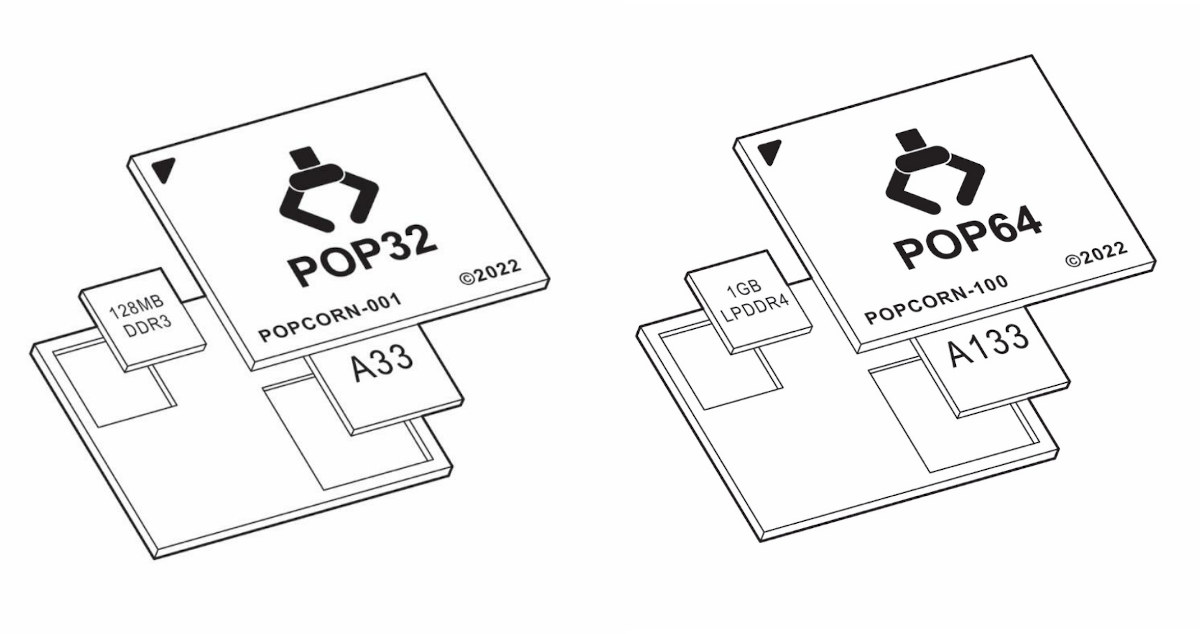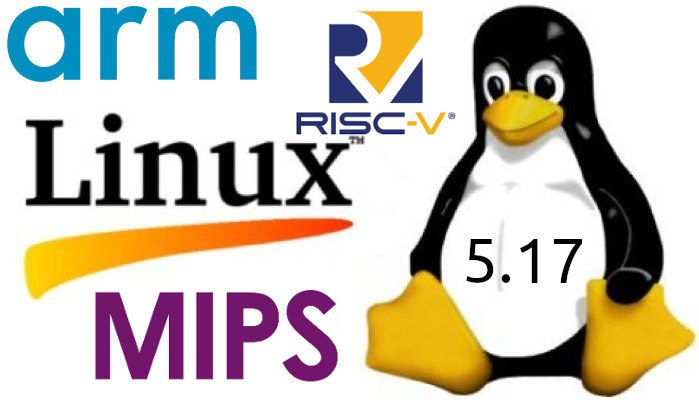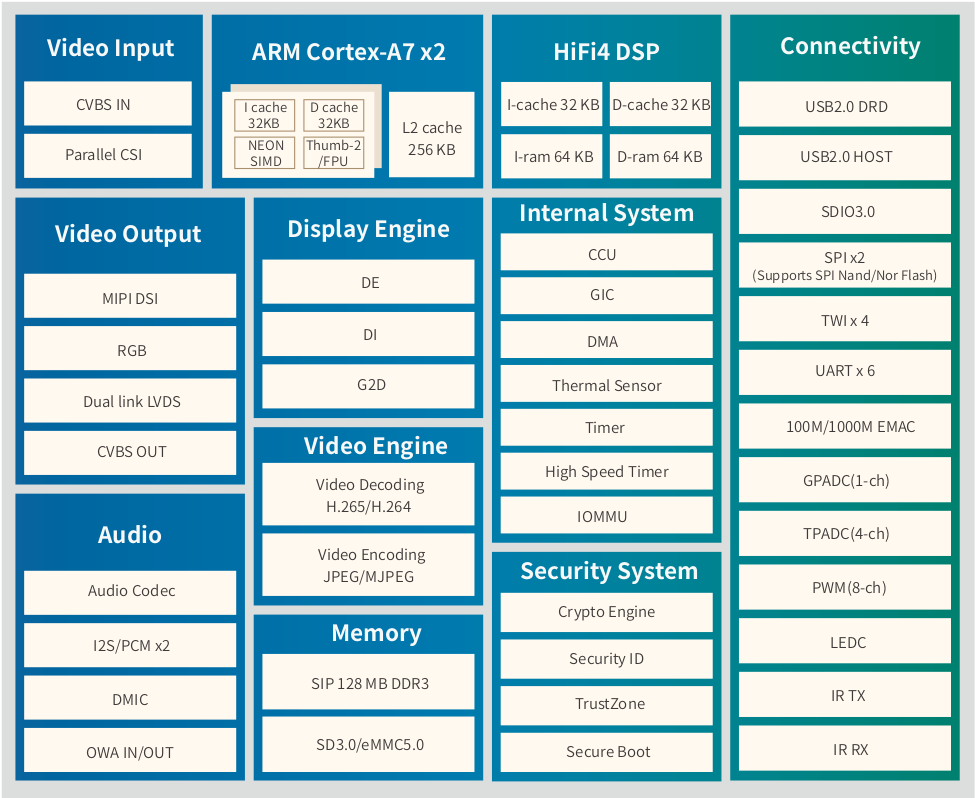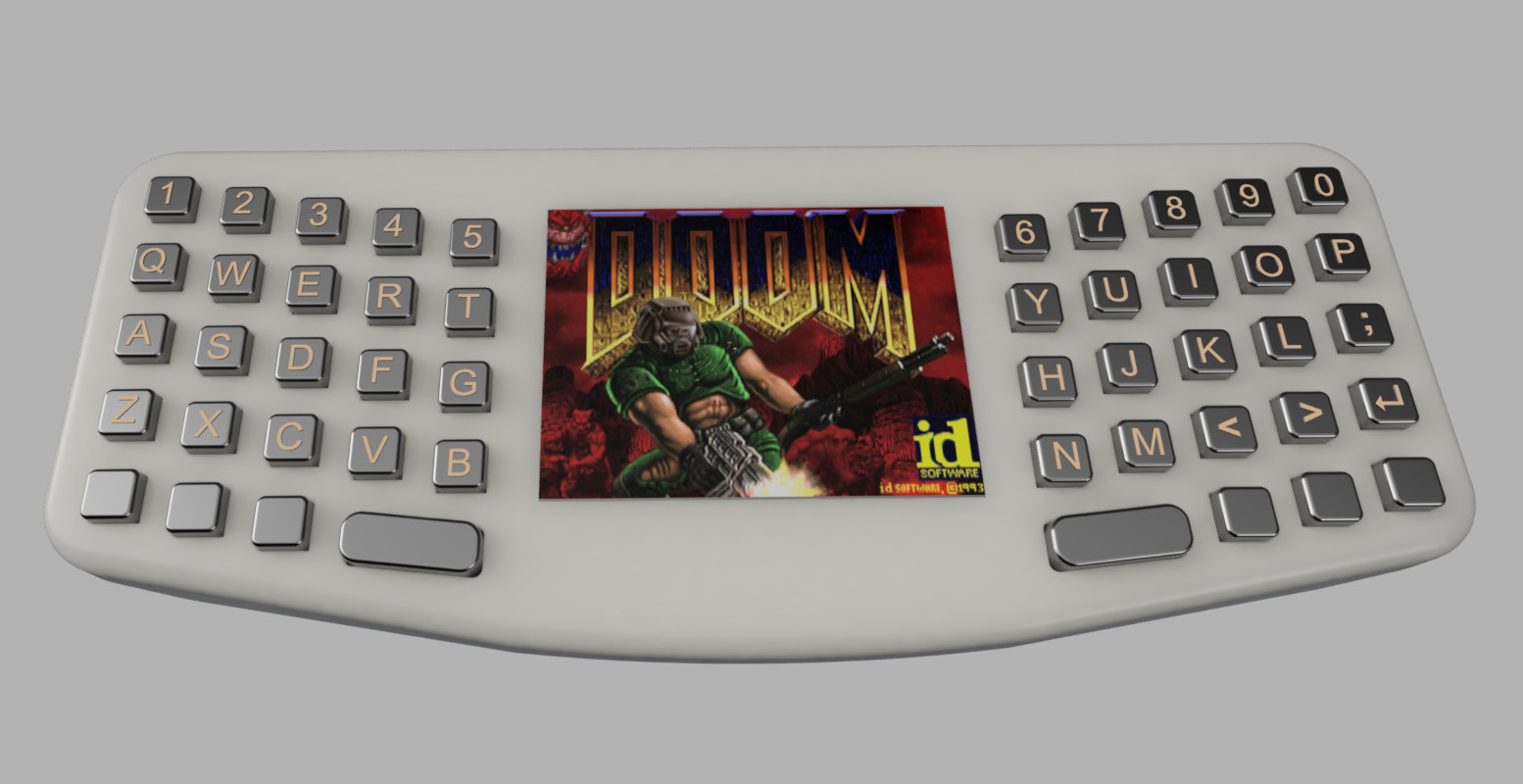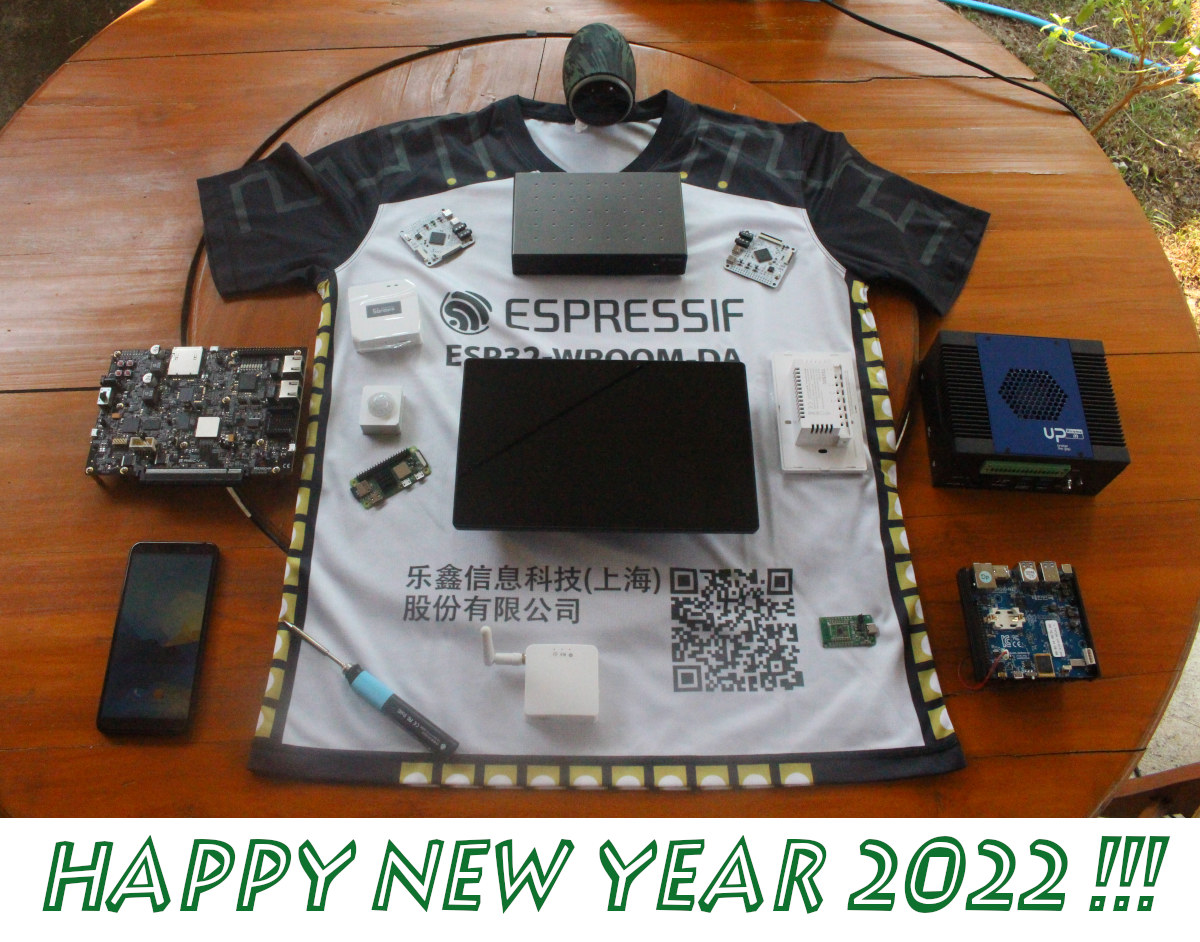Linux 5.18 is out! Linus Torvalds has just announced the release on lkml: No unexpected nasty surprises this last week, so here we go with the 5.18 release right on schedule. That obviously means that the merge window for 5.19 will open tomorrow, and I already have a few pull requests pending. Thank you everybody. I’d still like people to run boring old plain 5.18 just to check, before we start with the excitement of all the new features for the merge window. The full shortlog for the last week is below, and nothing really odd stands out. The diffstat looks a bit funny – unusually we have parsic architecture patches being a big part of it due to some last-minute cache flushing fixes, but that is probably more indicative of everything else being pretty small. So outside of the parisc fixes, there’s random driver updates (mellanox mlx5 stands out, […]
Allwinner T507 industrial processor powers automotive single board computer and module
Forlinx OKT507-C single board computer for automotive applications is powered by FETT507-C system-in-module equipped with Allwinner T507 industrial processor, 2GB RAM, and 8GB eMMC flash. Allwinner T507 offers the same features as Allwinner H616 for TV boxes with a quad-core Cortex-A53 CPU, a Mali G31 MP2 GPU, and the same I/Os, but the processor is AEC-Q100 certified, supports -40°C to +85°C temperature range, and Allwinner promises over 10 years of longevity. OKT507-C single board computer specifications: FETT507-C System on Module SoC – Allwinner T507 quad-core Cortex-A53 @ 1.5GHz with Arm Mali-G31 MP2 GPU with support for OpenGL ES 3.2/2.0/1.0, Vulkan1.1, OpenCL 2.0; (“2.25W power consumption under load”) System Memory – 2GB DDR3L Storage – 8GB eMMC flash Board-to-board connectors for carrier board connection Supply Voltage- 5 V Dimensions – 70 x 40 mm Temperature Range – -40°C to +85°C Carrier board Storage – MicroSD card slot Display I/F 1x LCD […]
Allwinner V853 Arm Cortex-A7 + RISC-V SoC comes with 1 TOPS NPU for AI Vision applications
Allwinner V853 SoC combines an Arm Cortex-A7 core with a Xuantie E907 RISC-V core, and a 1 TOPS NPU for cost-sensitive AI Vision applications such as smart door locks, smart access control, AI webcams, tachographs, and smart desk lamps. Manufactured with a 22nm process, the SoC comes with an ISP image processor and Allwinner Smart video engine capable of up to 5M @ 30fps H.265/H.264 encoding and 5M @ 25fps H.264 decoding, offers parallel CSI and MIPI CSI camera interfaces, and well as MIPI DSI and RGB display interfaces. Allwinner V853 specifications: CPU Arm Cortex-A7 CPU core @ 1 GHz with 32 KB I-cache, 32 KB D-cache, and 128 KB L2 cache Alibaba Xuantie E907 RISC-V core with 16 KB I-cache and 16 KB D-cache NPU (Neural network Processing Unit) – Up to 1 TOPS for V853 and 0.8 TOPS for V853S, embedded 128KB internal buffer, support for TensorFlow, Caffe, […]
POP32 & POP64 SIPs combine Allwinner A33 and A133 with SDRAM into a single package
Kettlepop is a board based on Allwinner GR8 system-in-package (SiP) with an Allwinner R8/A13 Arm Cortex-A8 CPU and 256MB RAM, and itself a derivative of the CHIP Pro board from Next Thing Co that closed doors a few years ago. Source Parts has just posted an update explaining that the GR8 SiP is not available anymore, so they worked on their own SiPs: POP32 and POP64. POP32 combines an Allwinner A33 quad-core Cortex-A7 processor with 128MB DDR4, while POP64 features an Allwinner A133 quad-core Cortex-A53 processor with 1GB LPDDR4. POP32 system-in-package POP32 highlights: SoC – Allwinner A33 quad-core Arm Cortex-A7 processor with Arm Mali-400 MP2, 1080p60 H.264, VP8, MPEG 1/2/4, JPEG/MJPEG video decoding, 1080p60 H.264 video encoding Memory – Built-in 128MB DDR3 Peripherals from SoC Storage I/F – NAND flash, 3x SD/MMC Display – MIPI DSI, LVDS, RGB LCD up to 1280×800 resolution Camera I/F – Parallel camera interface up […]
Linux 5.17 release – Main changes, Arm, RISC-V, and MIPS architectures
Linus Torvalds has just released Linux 5.17: So we had an extra week of at the end of this release cycle, and I’m happy to report that it was very calm indeed. We could probably have skipped it with not a lot of downside, but we did get a few last-minute reverts and fixes in and avoid some brown-paper bugs that would otherwise have been stable fodder, so it’s all good. And that calm last week can very much be seen from the appended shortlog – there really aren’t a lot of commits in here, and it’s all pretty small. Most of it is in drivers (net, usb, drm), with some core networking, and some tooling updates too. It really is small enough that you can just scroll through the details below, and the one-liner summaries will give a good flavor of what happened last week. Of course, this means […]
Allwinner T113-S3 dual-core Cortex-A7 SoC features 128MB DDR3, targets automotive and industrial applications
Allwinner T113-S3 is a dual-core Cortex-A7 processor with 128MB DDR3 on-chip memory that is designed for smart control and HMI applications in the automotive and industrial sectors. At first glance, the new processor looks quite similar to Allwinner S3, but with twice the number of cores. However there’s more to it, as a a HiFi4 DSP has been added for smart audio applications, the H.264 encoder is gone replaced by an MPJEG encoder, and the company claims support for “industrial level working temperature”, plus a 10-year life cycle. among other differences. Allwinner T113-S3 specifications: CPU – Dual-core Arm Cortex-A7 with 32 KB L1 I-cache + 32 KB L1 D-cache per core, and 256 KB L2 cache DSP – Single-core HiFi4 Memory – 128 MB DDR3 Storage I/F – SD3.0/eMMC 5.0, SPI Nor/NAND Flash Video Decoding – H.264, H.265, MPEG-1/2/4, (M)JPEG, VC1 up to 1080p60 Encoding – JPEG/MJPEG up to 1080p60 […]
Allwinner F1C100s handheld computer should cost $15 to manufacture
Brian Benchoff’s “minimum viable computer’” is a Linux handheld computer powered by an Allwinner F1C100s ARM9 processor that could fit into your pocket and should cost about $15 (BoM cost) to manufacture in quantity. The open-source hardware Linux “computer” comes with 32MB or 64MB RAM, a 2.3-inch color display, a 48-key keyboard, a USB port, and is powered by two AAA batteries. Don’t expect a desktop environment, but it can run a terminal to execute scripts, or even run Doom. Minimum viable computer specifications: SoC – Allwinner F1C100s ARM926EJ-S CPU @ 533 MHz with 32 MB DDR built-in (Upgradable to 64 MB with the pin-compatible F1C200s) Storage – 64GB MicroSD card Display – 2.3” IPS TFT display with 320 x 240 resolution (ILI9342 SPI controller) USB – USB 2.0 Type-A port Keyboard – 48-key keyboard with a silicone membrane (just like most TV remote controls) Misc – Power button, 6-pin […]
Year 2021 in review – Top 10 posts and statistics
As per tradition, we’ll look back at what happened during the year in the last post, and see what 2022 may have in store, plus the usual statistics from CNX Software website. The biggest story of 2021 has to be the worsening of semiconductors shortages with extremely long lead times, prices of some components going up multiple folds, constant complaints on Twitter about availability and prices. I think I even saw a website, hopefully misconfigured, showing an estimated availability of a specific STM32 MCU in 2037. This also gave rise to opportunities and board redesigns, with MotorComm Ethernet chips replacing some Realtek chips in SBCs such as NanoPi R2C and Orange Pi R1S Plus LTS, and CH9102F showing up as a replacement for CP2104 in some IoT boards. We also got some interesting Arm processors, but sadly the high-expected Rockchip RK3588 got delayed by another year, although it’s getting really […]


